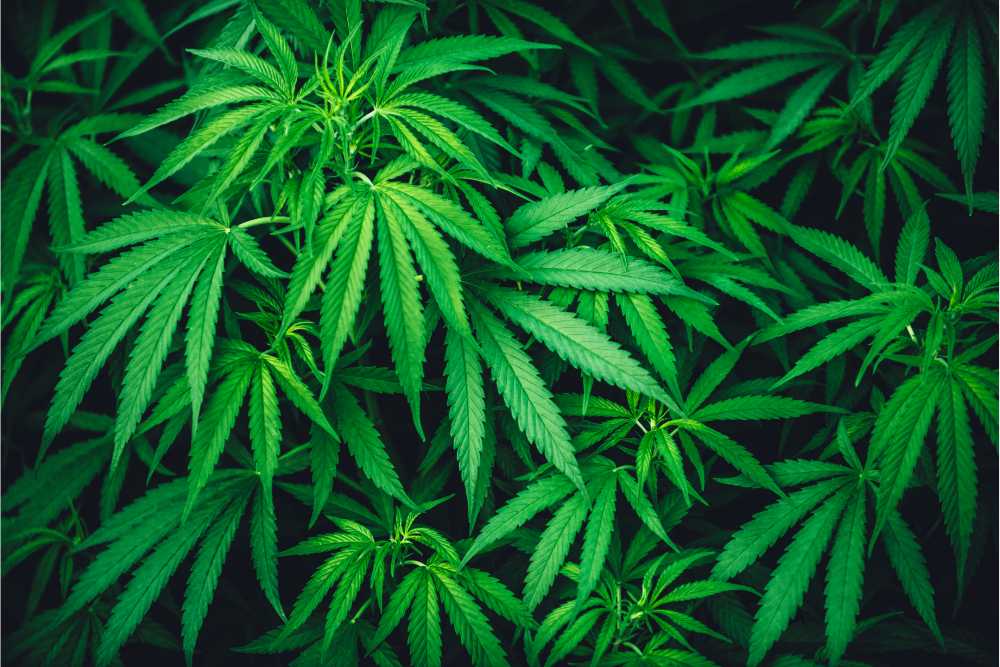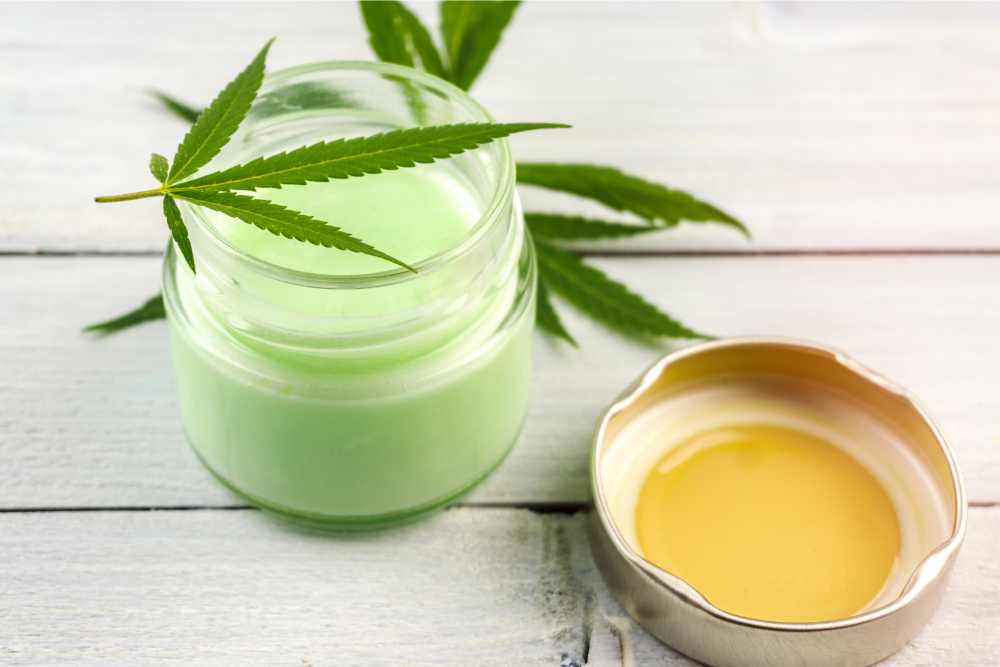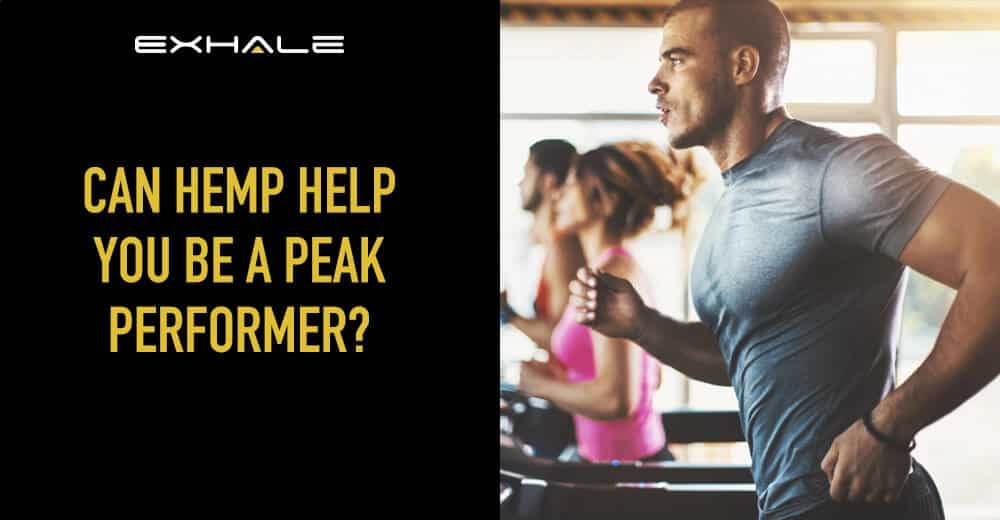Ever wondered if your cannabis performance could help your athletic performance? So have we! It turns out there could be a lot of potential for adding hemp to your workout regimen. Despite the stigma of lazy stoners, there is a growing community of physically active cannabis consumers. Hemp and cannabis can be especially useful in workout recovery and quality rest.
With medical cannabis becoming legal in most US states, curiosity around fitness and cannabinoids is at an all-time high. Join us in taking a closer look at how hemp and cannabis can help with exercise performance. From muscle recovery to better sleep, we look at the important points for those wanting to integrate hemp into a healthy workout program.
Exploring The Relationship Between Cannabis Performance & Exercise Performance
Many fans of fitness and hemp find that it helps them get more enjoyment out of their workout. Many others have felt that hemp improved their performance. In recent years, certain scientific studies have suggested this may be credible. In this study, hemp and cannabis consumers report more motivation and enjoyment in their workouts. They also felt they recovered faster and could return to workouts sooner.
Motivation, enjoyment, and recovery are all key ingredients to a successful and sustainable exercise program. These findings show a promising relationship between cannabinoid consumption and exercise performance. Further in-person research will be key to understanding how cannabinoids impact sports performance.

Cannabis Performance: How Can Hemp-Derived Cannabinoids Optimize Your Exercise Performance?
Athletes always seek ways to enhance their endurance and achieve maximal exercise performance. If cannabinoids can be helpful, they are not like other performance-related drugs. Cannabinoids appear to be of most use when managing the body’s exertion after intense physical exercise. Our bodies often experience exercise-induced muscle soreness and discomfort after physical activity. Athletes can incorporate certain cannabinoids into their program to assist with exercise-related discomfort.
One way that these cannabinoids can be incorporated is through the use of tinctures, capsules, and topicals. Tinctures and capsules offer a convenient way to consume precise doses of CBD, THC, THCP and THCv. At the same time, topicals provide targeted relief when applied to specific areas, such as tired muscles or strained joints.
CBD (Cannabidiol) may help ease exercise-induced discomfort and promote relaxation. It can also help with sleep quality, muscle recovery, and the ability to perform optimally during later workouts. Due to its cerebral effects, consuming THC (Delta 9 Tetrahydrocannabinol) requires more care. THC can relieve sore muscles, which may be useful for managing exercise-related discomfort. THCv (Tetrahydrocannabivarin) shows potential in curbing excessive appetite, which may benefit athletes aiming to maintain a healthy weight.
Further research will illuminate the effects of these cannabinoids on exercise-related discomfort. Athletes should consult medical professionals or experts specializing in sports nutrition before incorporating cannabinoids into a workout regimen.
What Role Does The Endocannabinoid System Play In Working Out?
The endocannabinoid system (ECS) plays a vital role in working out. The endocannabinoid system (ECS) is a vast cell-signaling network that regulates several physiological processes. The ECS is involved with everything from the sensation of discomfort to our mood and energy metabolism. The ECS consists of a series of cannabinoid receptors; and produces its own set of cannabinoids, known as endocannabinoids. These compounds share an almost identical molecular structure with CBD and THC, which is how the ECS interacts with hemp and cannabis.
Recent research suggests that exercise may induce changes in the body’s endocannabinoid system. Exercise appears to increase concentrations of the endocannabinoids, Anandamide (AEA), and 2-arachidonoylglycerol (2-AG). Activation of the ECS through an increase in anandamide and 2-AG during exercise may contribute to the euphoria or “runner’s high” often experienced after a workout. These endocannabinoids can send signals to neurons in the brain, contributing to feelings of well-being and reduced anxiousness. The ECS may also play a role in how our bodies regulate energy levels, even during a workout.
While we need more research to fully understand the role of the ECS in working out, these findings are encouraging. The research shows that endocannabinoids may help exercise by regulating energy metabolism. Further research should focus on how exercise and cannabinoids can benefit athletic performance and aid post-workout recovery.

CBD & Athletic Performance
Incorporating CBD consumption into fitness and exercise regimens has the potential to provide a range of benefits. CBD may be useful in mitigating and alleviating exercise-induced discomfort and soreness. There are several ways to incorporate CBD into pre-and post-workout routines, such as:
- Oral consumption: You can ingest CBD in various forms, including CBD oil tinctures, capsules, and edibles, such as gummies or energy bars. These convenient products are ideal for consuming before or after a workout.
- Topical application: Rubbing CBD-infused topical creams and lotions onto targeted areas. If you experience discomfort or soreness, CBD topicals can help with post-workout muscle recovery.
- Inhalation: You can also inhale CBD through vaporizer devices or by smoking CBD-rich hemp flower. However, smoking CBD products may not be ideal for non-smokers, where vaping or edibles are more suitable.
It is important to note that we need more research to fully understand the effects of CBD on athletic performance and recovery. Additionally, consulting with a physician or expert in sports nutrition before incorporating CBD into a workout routine is essential. Experts can assess the proper dosage and method of consumption based on individual needs and factors.
THC & Athletic Performance
One study suggests that THC may reduce perceived muscle soreness and improve recovery time. Some fitness enthusiasts also find THC helpful in relieving other training-related discomfort. Others note how it can help them push their maximal exercise capacity. The legal status of THC and cannabis can vary depending on where you live, so be sure to check local laws before proceeding.
As always, we need more rigorous research to understand THC’s potential to help with workout recovery. Individuals should discuss THC’s potential benefits and risks with their doctor or expert in sports medicine before incorporating it into their fitness regimens.
Disclaimer: Consuming THC (Delta 9 Tetrahydrocannabinol) has many physical and cerebral effects. It is important to keep cannabis potency in mind when considering how it may affect performance, as higher THC quantities will produce more pronounced effects.
THCv & Athletic Performance
THCv, or tetrahydrocannabivarin, may have potential benefits for fitness regimens too. While research is still emerging, studies show that THCv may help with caloric intake by curbing an excessive appetite. THCv may also provide a stimulant-like effect, increasing energy levels, mental focus, and clarity.
Once again, further research will help us understand the potential effects of THCv on weight management and fitness. You should consult a healthcare professional before incorporating THCv or other cannabinoids into your fitness program.

The Legal Status Of Hemp-Derived Cannabinoids In Sports
To safely add cannabinoids to your fitness program, knowing the legal status of hemp in your location is fundamental. For individuals in legal states that want to consume as part of their regimen, you’re in luck! For athletes competing in professional sports, consuming cannabinoids is more complicated.
Legality and Anti-Doping Regulations
The World Anti-Doping Agency (WADA) allows CBD consumption in professional sports. All other cannabinoids, including THC, are still prohibited in competition by WADA. THC is not classified among the list of performance-related drugs but remains a banned substance. Sporting organizations can penalize professional athletes testing positive for THC in competitive sports. So athletes should be extra cautious when consuming cannabinoids. This also applies to CBD products, which may still contain prohibited cannabinoids like THC.
Additionally, some sports organizations have their own policies and regulations on hemp-derived cannabinoids. This includes CBD, even if WADA allows it. Professional athletes should adhere to their respective organizations’ specific rules and guidelines. We recommend athletes consult their sports organizations to understand the current legal status.
Examples Of Professional Athletes Using Hemp Products
Cannabis and hemp consumption by athletes can be a complex and controversial topic. While acceptance continues to grow, individual circumstances may vary in each setting. Here are a few notable examples of professional athletes consuming cannabinoids:
- Ross Rebagliati: Canadian snowboarder Ross Rebagliati made headlines during the 1998 Winter Olympics. He won the gold medal in the giant slalom event and later tested positive for THC, a compound found in cannabis. His case sparked a discussion around cannabis use in athletics, eventually leading to THC being temporarily removed from the list of banned substances by the International Olympic Committee (IOC).
- Nate Diaz: American mixed martial artist Nate Diaz openly admits to consuming CBD. He states how it helps his mind and body relax following bouts. Diaz has been and remains a vocal advocate for CBD, mentioning its benefits in aiding his post-fight recovery.
- Riley Cote: Former professional ice hockey player Riley Cote consumes cannabis as an alternative to pharmaceutical drugs. He finds THC and CBD helpful for managing discomfort, soreness, and general wellness. Cote founded the Hemp Heals Foundation, which promotes the benefits of hemp and cannabis for athletes. The Foundation also seeks to destigmatize the use of cannabinoids for sport.
It’s worth mentioning that these examples are not an exhaustive list of athletes. Many other elite athletes may have used cannabis or hemp in their careers. It’s also important to note that the use of cannabis or hemp in professional sports is subject to specific regulations and policies. These policies can vary, and athletes should know the rules in their respective sports.

The Importance of Controlled Studies & Cannabis Performance
To change the legal standing of hemp and cannabis in sports, we need more hemp and cannabis research. Comprehensive, controlled scientific studies are crucial. It will allow science to highlight the positive aspects, assess safety concerns, and test potential health risks. Current research suggests there may be benefits to combining cannabis and fitness correctly. We need more real-world research to continue learning about cannabinoids and exercise performance.
Final Thoughts – Cannabis Performance: Can Hemp Help With Athletic Performance?
Depending on their consumption method and amount, hemp may help athletes. The research will help us test exercise capacity and sports performance with cannabinoids. Hemp and performance-enhancing drugs occupy different categories in sports but usually prohibit THC. Certain cannabinoids such as CBD, THC, and THCv may be especially suitable to optimize physical performance. The most potential appears to be in assisting with workout recovery. Cannabinoids can help with discomfort, muscle soreness, and better quality rest.
The current research on cannabinoids and fitness is promising, but we need more real-world studies. Determining what ratios, dose sizes, and consumption methods best suit specific needs is essential. If you are considering cannabinoids for fitness, remember to do your research. As with any other supplement in your wellness regimen, always follow serving guidelines and consume responsibly. Happy training!



